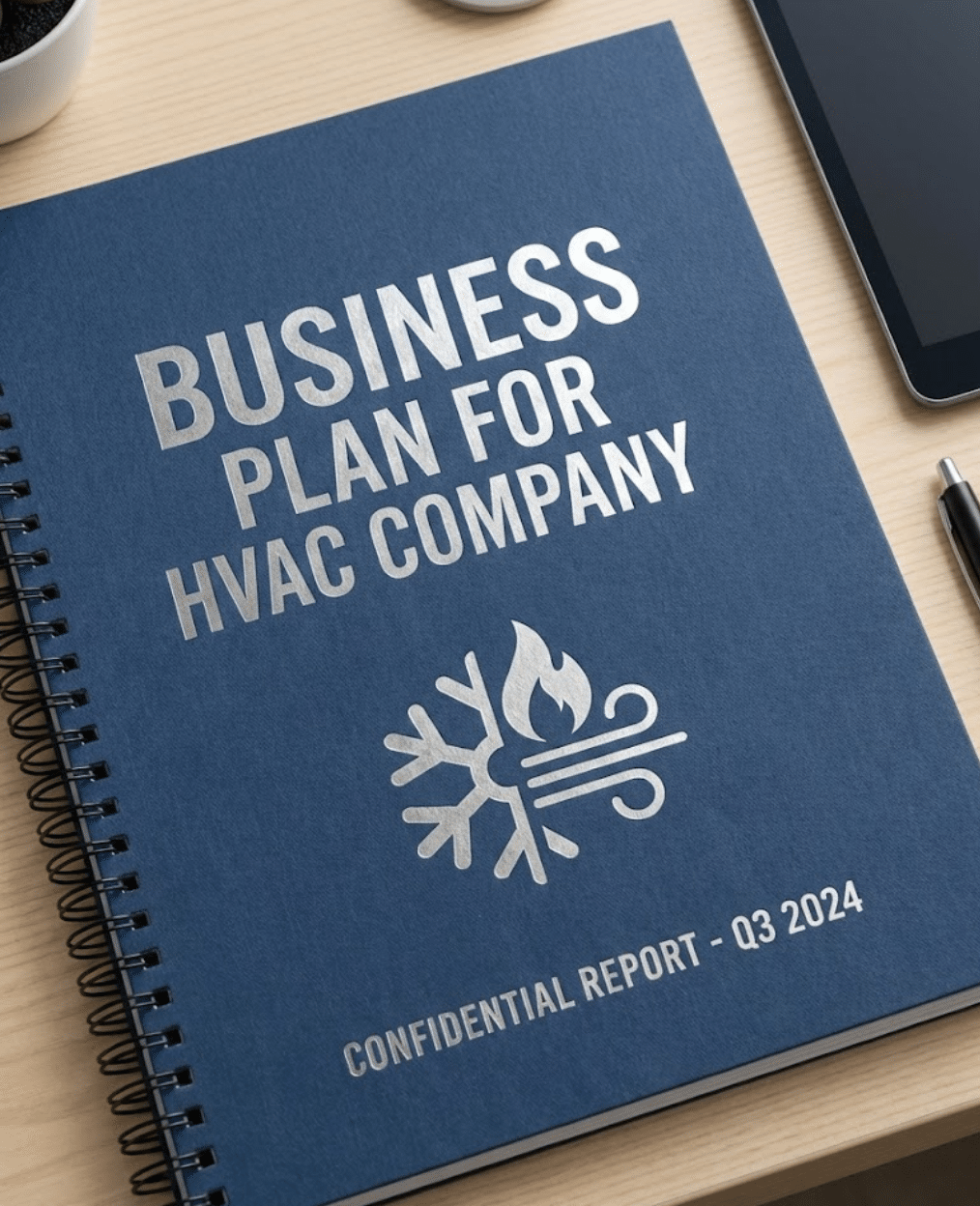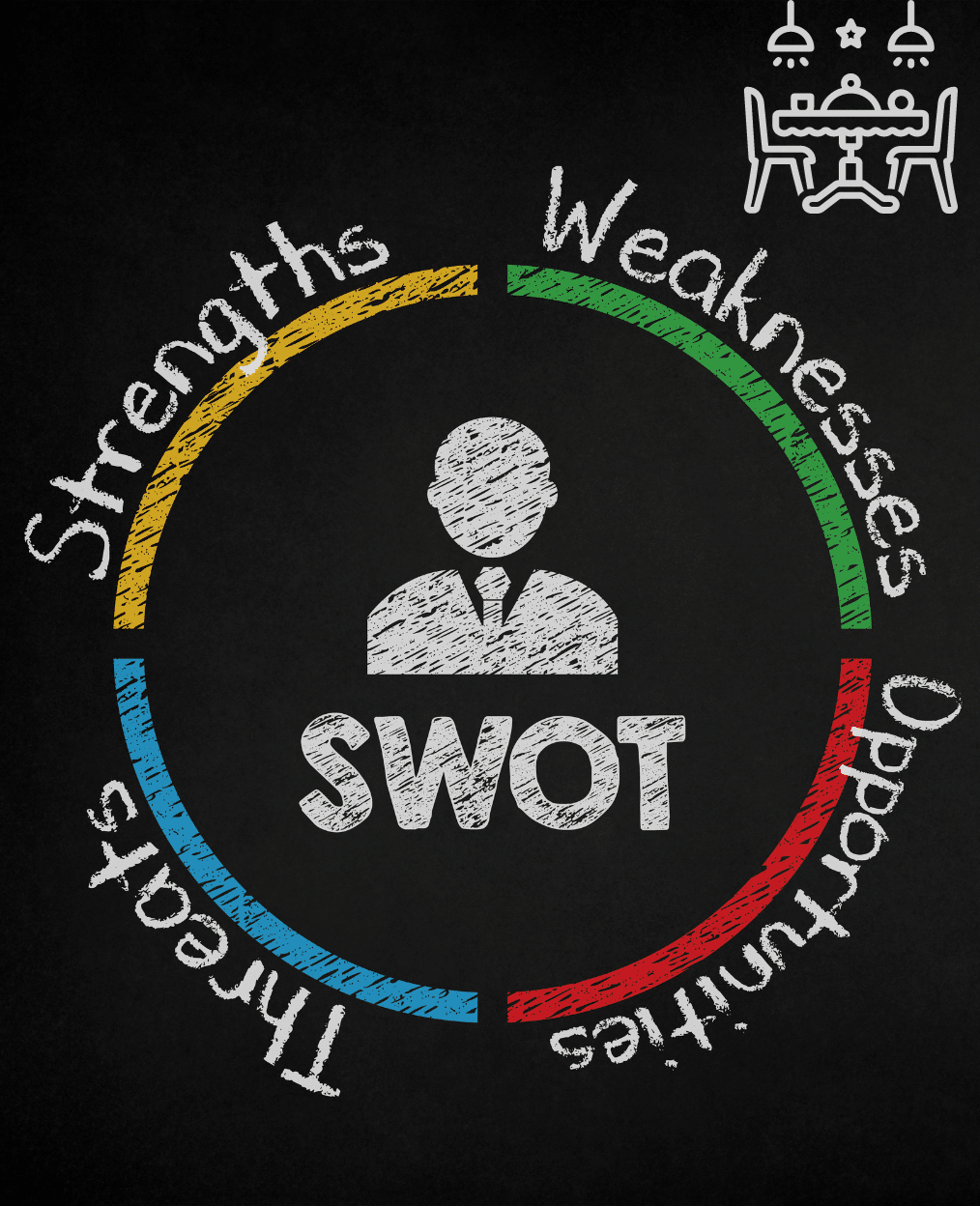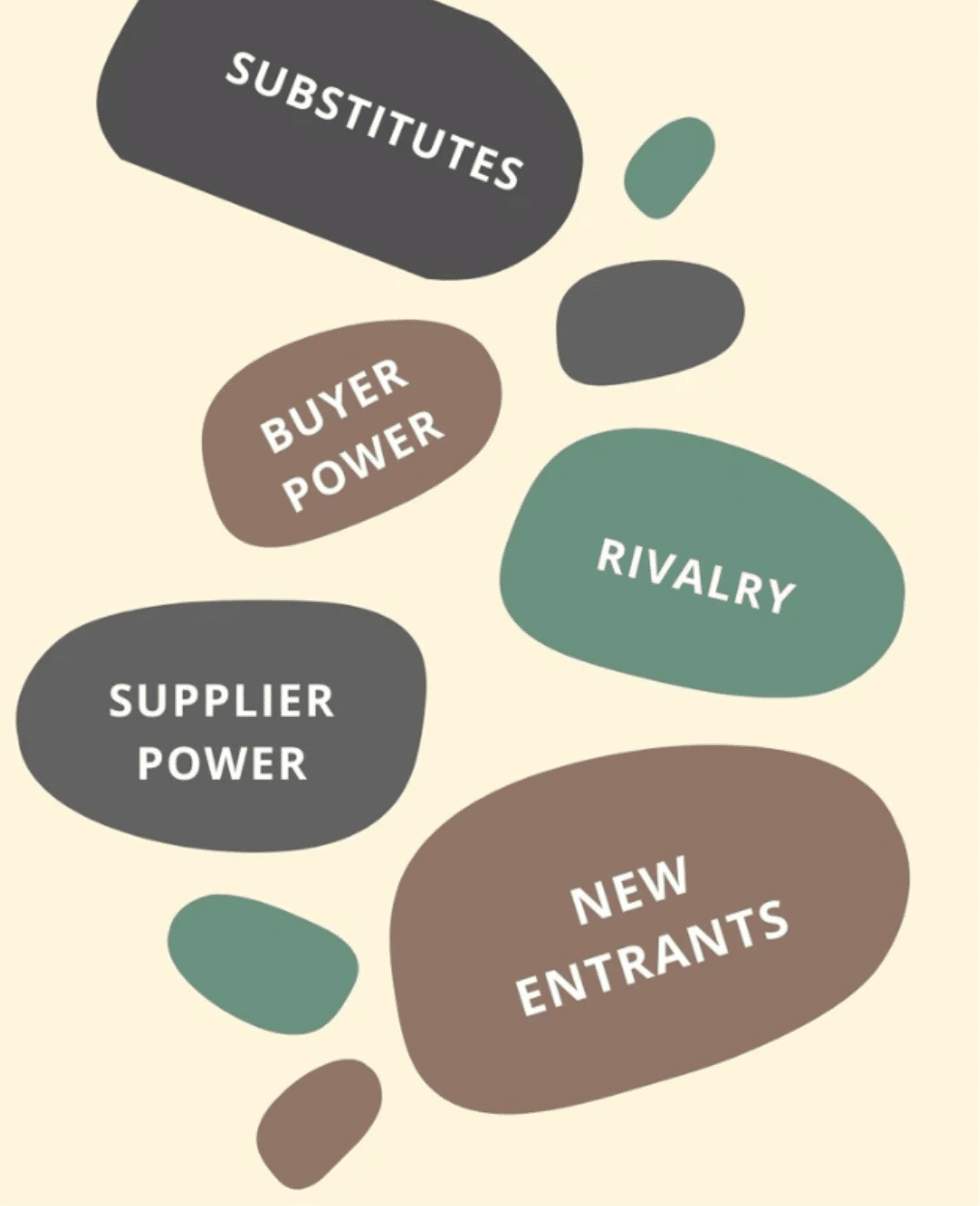
In the fast-paced and ever-evolving world of business, communication stands as a pivotal pillar of success. Whether it’s negotiating a deal, pitching to investors, engaging with customers, or leading a team, the way we convey our messages can significantly influence outcomes. At the heart of impactful communication lies the strategic use of language, particularly the choice of adjectives. These descriptors do more than just embellish speech; they shape perception, drive action, and differentiate leaders, products, and services in a crowded marketplace.
This article delves into the world of adjectives in business communication, exploring how these powerful words can be harnessed to enhance messaging, build brand identity, and create effective interpersonal interactions. From the comprehensive A-Z guide of business adjectives to the nuanced application in various business contexts and industries, we provide insights and examples that illustrate the transformative power of adjectives.
Whether you’re a seasoned executive, an aspiring entrepreneur, a marketing professional, or anyone in between, understanding and utilizing the right adjectives can elevate your communication strategy, resonate with your audience, and lead to better business results. So, let’s embark on this linguistic journey and unlock the potential of adjectives to empower your business communication.
Contextual Business Adjectives
Understanding the context and application of specific adjectives can significantly enhance the way professionals articulate business concepts, strategies, and values. This section delves into various categories of business adjectives, providing examples and explaining their importance in different business contexts.
Business Adjectives
- Innovative: Businesses that are innovative are often seen as leaders in their field, continuously evolving and finding new solutions to old problems.
- Pioneering: Pioneering companies are first movers in their industries, bravely venturing into uncharted territories and setting new benchmarks.
- Strategic: Strategic thinking is crucial for long-term success, involving careful planning and the efficient allocation of resources.
Adjectives for Responsibility
- Accountable: Being accountable means taking responsibility for actions and outcomes, a vital trait for transparency and trust in business.
- Dedicated: Dedication shows commitment and single-mindedness in pursuing goals, often leading to high-quality outcomes and perseverance through challenges.
- Reliable: Reliability is foundational in business, indicating dependability and consistency in quality and performance.
Customer Service Adjectives
- Attentive: Attentive service focuses on listening and addressing customer needs and concerns, leading to higher satisfaction and loyalty.
- Courteous: Courtesy in customer interactions creates a positive and welcoming environment, often resulting in a better customer experience.
- Empathetic: Empathy involves understanding and genuinely relating to customers’ feelings or issues, fostering deeper connections and trust.
Adjectives for Marketing
- Compelling: Compelling marketing captures interest and convinces the audience of a need or desire for a product or service.
- Engaging: Engaging content draws the audience in and keeps their attention, making marketing messages more effective and memorable.
- Persuasive: Persuasive communication skillfully convinces others to understand, accept, and act upon a message, idea, or call to action.
Powerful Adjectives
- Dominant: Dominant businesses or products lead the market, exerting significant influence and setting standards for others.
- Paramount: Something of paramount importance is of highest priority, often leading the agenda in business strategies or discussions.
- Robust: Robust systems, strategies, or products are strong and effective, capable of withstanding challenges and pressures.
Tech Adjectives
- Innovative: In technology, innovation is key to staying ahead, constantly pushing boundaries and creating new possibilities.
- User-friendly: Technology that is user-friendly is accessible and easy to use, leading to wider adoption and customer satisfaction.
- Cutting-edge: Cutting-edge technology represents the most advanced and innovative developments in the field.
Adjectives to Describe a Company
- Reputable: A reputable company is known for its good standing and reliability, often earning trust and respect from customers and peers.
- Growing: Growing companies are expanding in size, market presence, or influence, indicating health and vitality.
- Established: Established companies have a proven track record and are recognized as stable and enduring in their industry.
Adjectives for Branding
- Catchy: Catchy names or slogans are memorable and stick in the mind, making them effective for branding and marketing.
- Memorable: Memorable brands create lasting impressions, often leading to long-term customer recognition and loyalty.
- Distinctive: Distinctive brands stand out from competitors, offering unique value propositions and identities.
Adjectives for Resume
- Accomplished: Indicates a history of achieving notable goals or milestones, often leading to a perception of competence and success.
- Proficient: Proficiency suggests a high level of skill or expertise in particular areas, making one an asset in those fields.
- Dynamic: Dynamic individuals are characterized by positive energy and a continuous drive for progress and innovation.
Adjectives for Leadership
- Visionary: Visionary leaders inspire with their insight and foresight, often guiding businesses into successful future ventures.
- Inspiring: Leaders who inspire motivate their teams to achieve more and perform at their best through positive influence.
- Commanding: Commanding leaders have a presence and authority that naturally draw respect and obedience, often driving change and action.
Industry-Specific Business Adjectives
Different industries have their own sets of terminologies and adjectives that are commonly used to describe their operations, goals, and challenges. Understanding these adjectives can help professionals communicate more effectively within their industry by using language that resonates with their specific audience and accurately represents their sector’s values and priorities.
Finance and Banking Adjectives
- Profitable: A fundamental adjective in finance, indicating that an endeavor or entity is generating more revenue than expense, leading to financial gain.
- Solvent: Solvency refers to the ability of an organization to meet its long-term debts and financial obligations, crucial for stability and trust in finance.
- Risk-averse: A term often used to describe an individual or entity that prefers lower risk options, emphasizing security and stability over potentially higher but riskier returns.
Retail and Sales Adjectives
- Trendy: Reflecting what is currently popular or fashionable. In retail, staying trendy is often crucial for attracting customers and encouraging sales.
- Desirable: Products or services that are appealing to customers and sought after in the market. Creating desirable offerings is a key focus in retail and sales.
- Affordable: Pricing that is accessible to a wide range of customers. Affordability can be a significant competitive advantage in price-sensitive markets.
IT and Technology Adjectives
- Innovative: Technology sectors thrive on innovation, constantly developing new and improved products and services that push boundaries and set new standards.
- Streamlined: Technology that simplifies processes and enhances efficiency, often making systems faster, easier to use, or more effective.
- Scalable: In technology, scalability refers to the ability of a system or network to handle a growing amount of work or to be enlarged to accommodate that growth.
Healthcare and Biotech Adjectives
- Revolutionary: Healthcare and biotech are fields where revolutionary developments can lead to significant changes in treatment, diagnostics, and patient care.
- Patient-centered: Emphasizing the importance of the patient’s needs, experiences, and perspectives in healthcare delivery and innovation.
- Advanced: Referring to the level of progress and sophistication in medical technologies, procedures, and treatment methods.
Enhancing Communication with Adjectives
Effective communication is a cornerstone of business success. The adjectives used in business contexts can significantly influence the tone, clarity, and impact of your communication. Here, we explore how certain adjectives can be specifically applied to enhance communication in meetings, negotiations, and conflict resolution.
Adjectives for Effective Meetings
- Productive: A productive meeting is one where the time is used efficiently, and tangible results or progress can be seen following the discussion.
- Focused: Keeping a meeting focused means ensuring that the discussion stays on the designated topic or agenda, leading to clearer outcomes and better use of time.
- Inclusive: An inclusive meeting is one where all participants feel valued and able to contribute, fostering a more collaborative and respectful environment.
Adjectives for Negotiation and Persuasion
- Compelling: In negotiation, presenting compelling arguments means they are persuasive and convincing, often leading to more favorable outcomes.
- Fair: Fairness is crucial in negotiation, ensuring that all parties feel respected and that the outcome is equitable.
- Strategic: Being strategic in negotiation involves having a well-thought-out approach and anticipating the other party’s needs and potential responses.
Adjectives for Conflict Resolution
- Diplomatic: Diplomacy involves managing discussions and disagreements tactfully and respectfully, aiming for a positive outcome without causing unnecessary conflict or offense.
- Patient: Patience is key in conflict resolution, allowing time for all parties to express their views and for emotions to settle, leading to more thoughtful and effective solutions.
- Fair: Emphasizing fairness in conflict resolution ensures that solutions are balanced and considerate of everyone’s needs and rights.
Crafting Your Professional Image with Adjectives
The way professionals describe themselves and their work can have a profound impact on their image and how others perceive them. Below are adjectives that can help in crafting an appealing and effective professional image and corporate identity.
Adjectives for Professional Development
- Ambitious: Showing a strong desire and determination to succeed. Ambitious professionals are often driven and goal-oriented.
- Competent: Being competent means having the necessary ability, knowledge, or skill to do something successfully. Competence is fundamental to professional credibility.
- Skilled: Having the skills necessary means being adept and proficient in your professional field, often leading to higher quality work and respect from peers.
Adjectives for Corporate Identity
- Trustworthy: A trustworthy business is one that is reliable and can be depended on, a crucial quality for building and maintaining customer relationships and reputation.
- Innovative: Companies that are innovative are seen as leaders and forward-thinkers, often driving change and setting industry trends.
- Sustainable: Sustainability reflects a company’s commitment to responsible business practices, considering the long-term impact on the environment and society.
The A-Z of Business Adjectives
Adjectives that Start with A
- Agile: Reflects a business’s ability to move quickly and easily. An agile company is responsive to changes in the market and can adapt its strategy or operations swiftly.
- Assertive: In business, being assertive means communicating your needs, expectations, or opinions in a way that is clear and direct but also respectful. Assertive leaders make decisions confidently and encourage a culture of openness.
- Attentive: Demonstrating careful attention to the needs or concerns of clients or customers. Businesses that are attentive are likely to be customer-focused and detail-oriented, ensuring high satisfaction and quality service.
Adjectives that Start with B
- Bold: Indicates a business or individual willing to take risks; confident and courageous. Bold strategies or decisions stand out for their innovation and risk-taking nature.
- Brisk: Describes a pace that is quick and energetic. In business, brisk might refer to a rapid response, fast-moving market trends, or quick sales turnover.
- Beneficial: Something that provides advantages or positive outcomes. In a business context, beneficial strategies, partnerships, or products are those that result in profit, improvement, or gain.
Adjectives that Start with C
- Creative: Indicating originality and the ability to conceive something unique or innovative. Creative businesses often lead in terms of innovation and market disruption.
- Candid: Characterized by open and sincere expression. Candid communication in business is about transparency and honesty, crucial for building trust and integrity.
- Competitive: Reflecting a strong desire to be more successful than others. Competitive businesses are often leaders in their sector, continuously working to improve their services or products.
Adjectives that Start with D
- Dynamic: Indicating continuous change, activity, or progress. A dynamic business is one that is vibrant, active, and constantly evolving to meet market demands.
- Diligent: Characterized by steady, earnest, and energetic effort. Diligent workers or companies are noted for their persistent work ethic and attention to detail.
- Decisive: Reflecting the ability to make decisions quickly and effectively. In the business world, being decisive is crucial for leaders who need to guide their team and make strategic calls.
Adjectives that Start with E
- Efficient: Being efficient means producing results with little waste of time or resources. Efficient businesses are admired for their ability to deliver quality products or services with optimal use of inputs.
- Eloquent: The ability to communicate effectively and persuasively. An eloquent business leader or marketing campaign can significantly influence audiences and stakeholders.
- Ethical: Adherence to moral principles and values. In today’s business environment, being ethical is fundamental to maintain trust and reputation.
Adjectives that Start with F
- Futuristic: Pertaining to or involving thinking about the future. Futuristic businesses are ahead of the curve in anticipating and creating innovations.
- Flexible: Characterized by a ready capability to adapt to new, different, or changing requirements. A flexible business model or workforce is highly valued for its resilience and adaptability.
- Fervent: Having or displaying a passionate intensity. Fervent customer service or business advocacy can lead to high levels of engagement and loyalty.
Adjectives that Start with G
- Groundbreaking: Representing a significant breakthrough; pioneering. Groundbreaking innovations or strategies are those that change the industry landscape dramatically.
- Gracious: Characterized by kindness, courtesy, and tact. Gracious communication, even in difficult situations, can enhance a business’s image and relationships.
- Goal-oriented: Focused on setting and achieving objectives. Goal-oriented businesses and individuals are driven by targets and results, ensuring focused efforts and strategies.
Adjectives that Start with H
- Holistic: Emphasizing the importance of the whole and the interdependence of its parts. Holistic approaches in business consider all aspects of a company, ensuring comprehensive strategies.
- Hardworking: Industrious and diligent in carrying out tasks or duties. Hardworking teams are the backbone of successful businesses, driving productivity and results.
- High-performing: Operating at an advanced or exceptionally competent level. High-performing businesses are often industry leaders, known for their quality and excellence.
Adjectives that Start with I
- Innovative: Featuring new methods; advanced and original. Innovative businesses are constantly at the forefront of their industry, driving change and creating new market opportunities.
- Influential: Having great influence on someone or something. Influential leaders or companies shape trends, opinions, and even market dynamics.
- Intuitive: Easy to use or understand without explicit instruction. Intuitive products or services are user-friendly and accessible, often leading to higher customer satisfaction.
Adjectives that Start with J
- Judicious: Having, showing, or done with good judgment or sense. Judicious decision-making in business is crucial for long-term success and reputation.
- Jovial: Cheerful and friendly. Jovial atmospheres in workplaces contribute to better team cohesion and overall job satisfaction.
- Just: Based on or behaving according to what is morally right and fair. A just business is known for its ethical practices and fair treatment of all stakeholders.
Adjectives that Start with K
- Knowledgeable: Intelligent and well informed. Knowledgeable businesses or professionals are respected and trusted for their expertise and insights.
- Keen: Having or showing eagerness or enthusiasm. Keen companies are often very competitive and proactive in pursuing opportunities and innovations.
- Kinetic: Relating to or resulting from motion. In a business context, kinetic can refer to the dynamic and energetic aspect of business activities and operations.
Adjectives that Start with L
- Lucrative: Producing a great deal of profit. Lucrative markets, products, or strategies are highly sought after for their potential to generate significant earnings.
- Lean: Efficient and with no waste. Lean businesses are admired for their ability to deliver value with minimal resources and streamlined processes.
- Loyal: Giving or showing firm and constant support or allegiance. Loyal customers or employees are invaluable, contributing to stability and long-term success.
Adjectives that Start with M
- Methodical: Done according to a systematic or established form of procedure. Methodical businesses are organized and efficient, ensuring consistency and quality in their outputs.
- Motivated: Having a strong reason to act or accomplish something. Motivated employees drive a business forward with their energy and commitment to goals.
- Meticulous: Showing great attention to detail; very careful and precise. Meticulous work is often error-free and highly valued in fields where accuracy is paramount.
Adjectives that Start with N
- Novel: New or unusual in an interesting way. Novel ideas or approaches in business can lead to unique opportunities and differentiation in the market.
- Nimble: Quick and light in movement or action; agile. Nimble businesses are able to adapt quickly to changes or challenges in the marketplace.
- Noteworthy: Worthy of attention or notice; remarkable. Noteworthy achievements or innovations are recognized and respected, often setting a business apart from its competitors.
Adjectives that Start with O
- Opportunistic: Taking immediate advantage, often unethically, of any circumstance of possible benefit. In a more positive light, it can also mean being adept at recognizing and pursuing opportunities that arise.
- Organized: Arranged in a systematic way, especially on a large scale. Organized businesses are well-structured and efficient, often leading to better performance and productivity.
- Outstanding: Exceptionally good. Outstanding businesses, individuals, or services are recognized as superior in their field and often set the standards for others to follow.
Adjectives that Start with P
- Proactive: Creating or controlling a situation by causing something to happen rather than responding to it after it has happened. Proactive businesses anticipate and initiate change rather than merely reacting to events.
- Profitable: Bringing advantage or monetary gain. Profitable businesses are successful in generating more revenue than expenses, leading to financial growth and stability.
- Pioneering: Being the first to use or apply a new method, area of knowledge, or activity. Pioneering businesses lead the way in innovation and development, often changing the course of their industry.
Adjectives that Start with Q
- Quality: Characteristic or attribute of something. In business, quality refers to the standard of something as measured against other similar things; it’s about excellence and the value that products, services, or work bring.
- Quantifiable: Able to be expressed or measured as a quantity. Quantifiable results are essential in business for assessing performance, growth, and areas needing improvement.
- Quintessential: Representing the most perfect or typical example of a quality or class. Quintessential businesses or leaders are those that embody the best and most typical characteristics of their kind.
Adjectives that Start with R
- Resilient: Able to withstand or recover quickly from difficult conditions. Resilient businesses adapt and survive through challenges, changes, and crises.
- Resourceful: Having the ability to find quick and clever ways to overcome difficulties. Resourceful employees or companies are innovative and effective, often doing more with less.
- Reputable: Held in high esteem; known for its good quality and reliability. Reputable businesses are trusted and favored by customers, partners, and stakeholders.
Adjectives that Start with S
- Strategic: Related to the identification of long-term or overall aims and interests and the means of achieving them. Strategic thinking involves planning and foresight to gain competitive advantage.
- Sustainable: Able to be maintained at a certain rate or level; conserving an ecological balance by avoiding depletion of natural resources. Sustainable businesses focus on long-term viability and responsibility.
- Scalable: Capable of being changed in size or scale. Scalable businesses or systems can expand and adapt to increased demands without compromising performance or losing quality.
Adjectives that Start with T
- Tenacious: Tending to keep a firm hold of something; clinging or adhering closely. Tenacious individuals or businesses are persistent and determined, often overcoming obstacles and challenges.
- Transformative: Causing or able to cause an important and lasting change in someone or something. Transformative businesses or leaders bring about significant positive changes in their industry or organization.
- Trustworthy: Able to be relied on as honest or truthful. Trustworthy companies build strong relationships with customers, employees, and partners, and are essential for long-term success and integrity.
Adjectives that Start with U
- Unprecedented: Never done or known before. Unprecedented ideas or achievements in business break new ground and set new standards.
- Utilitarian: Designed to be useful or practical rather than attractive. In business, utilitarian products or services focus on functionality and efficiency, often appealing to a broad audience.
- Ubiquitous: Present, appearing, or found everywhere. Ubiquitous technology or products are so common that they appear to be everywhere, often becoming a standard or essential part of life.
Adjectives that Start with V
- Visionary: Thinking about or planning the future with imagination or wisdom. Visionary leaders and businesses are known for their foresight and innovative approaches that bring about change and progress.
- Versatile: Able to adapt or be adapted to many different functions or activities. Versatile companies or professionals can thrive in various situations and rapidly adjust to new challenges and environments.
- Vigorous: Strong, healthy, and full of energy. Vigorous business practices imply a robust and dynamic approach to business activities, often leading to growth and high performance.
Adjectives that Start with W
- Wise: Having or showing experience, knowledge, and good judgment. Wise decisions in business are those that are informed by deep understanding and insight, often leading to long-term benefits.
- Worldly: Experienced and knowledgeable about life, people, and cultures. Worldly businesses understand and navigate global markets effectively, respecting and incorporating a wide range of perspectives.
- Wholesome: Conducive to or suggestive of good health and physical well-being. Wholesome can relate to businesses that promote positive, ethical, and healthy environments for employees and customers alike.
Adjectives that Start with X
- Xenial: Friendly and hospitable, especially to visiting strangers or foreigners. In business, xenial relationships or environments are welcoming and open to new ideas, people, and cultures.
- X-factor: A noteworthy special talent or quality. Businesses or individuals with an X-factor have a unique, defining trait that makes them stand out and succeed.
- Xenodochial: Friendly to strangers. Often used in the tech world to describe user-friendly or accessible systems, this can also apply to businesses known for their approachability and customer service.
Adjectives that Start with Y
- Youthful: Remaining young and energetic. Youthful companies often have a vibrant and modern approach, constantly innovating and staying current with trends.
- Yielding: Producing a result, profit, or return. In business, yielding often refers to investments or strategies that generate positive outcomes and benefits.
- Yare: Quick and agile; easily maneuvered. Yare is typically used to describe ships but can be applied to businesses that are efficient, responsive, and able to quickly adapt to new conditions or changes.
Adjectives that Start with Z
- Zealous: Full of, characterized by, or due to zeal; ardently active, devoted, or diligent. Zealous professionals or businesses are passionate and committed, often driving innovation and excellence.
- Zenith: The highest point reached by a celestial or other object. In business, reaching the zenith means being at the very top of one’s industry or area of activity.
- Zestful: With great enthusiasm and energy. Zestful businesses or teams approach their work with excitement and vigor, often inspiring others and leading to positive outcomes.
Conclusion
The strategic use of adjectives in business communication cannot be overstated. These descriptive words serve as the coloring that can turn a bland statement into a compelling narrative, a forgettable message into a memorable one, and a complex idea into a vivid image. They have the power to influence, persuade, and move the reader or listener toward a desired understanding or action.
Adjectives provide nuance and depth to communication. They help business professionals articulate the unique selling points of a product, the core values of a company, or the key qualifications of an individual. In leadership, adjectives are part of casting a vision that is inspiring and engaging. In marketing, they are fundamental in creating brands that are desirable and products that are must-haves. In customer service, they transform interactions into experiences that are pleasant and memorable.
However, the power of adjectives is not just in their individual meanings but in their strategic application. Overuse or misuse can lead to confusion, disbelief, or disengagement. The key is in selecting adjectives that are accurate, relevant, and tailored to the audience and purpose. Each industry, company, or professional may find different sets of adjectives applicable and effective, depending on their unique context and goals.
In crafting your professional image or corporate identity, the adjectives you choose should resonate with the values and perceptions you wish to establish and maintain. They should be aspirational yet authentic, ambitious yet achievable. They form part of the narrative that you continuously create and communicate to your stakeholders.
In conclusion, adjectives are a vital component of business communication. They provide the emotional and qualitative context that facts and figures alone cannot convey. When used wisely, they enhance understanding, build rapport, and motivate action. As with any powerful tool, they should be used with consideration and care, ensuring that the message is not only heard but also felt and remembered. As we move forward in an increasingly complex and fast-paced business world, the ability to communicate effectively and persuasively is more important than ever, and adjectives will undoubtedly continue to play a crucial role in this endeavor.
How to Use Business Adjectives Effectively
Using adjectives effectively in business communication can greatly enhance your message’s clarity, impact, and persuasiveness. Here are some steps and tips on how to choose and use business adjectives for maximum effect:
- Understand Your Objective: Before selecting adjectives, be clear about the goal of your communication. Are you trying to persuade, inform, inspire, or motivate your audience? Your objective will guide which adjectives are most appropriate.
- Know Your Audience: Consider the preferences, needs, and level of understanding of your audience. Technical adjectives might be suitable for a professional audience, while simpler, more emotive adjectives might be better for a general audience.
- Choose Precise Adjectives: Select adjectives that precisely convey the desired quality or emotion. For example, instead of “good,” you might choose “innovative” or “reliable” to more specifically describe a business advantage.
- Use Adjectives to Differentiate: In competitive business environments, adjectives can help differentiate your product, service, or company from others. Use adjectives to highlight what’s unique or superior about what you’re offering.
- Balance Emotion and Fact: While adjectives can add an emotional appeal, they should be balanced with factual information to maintain credibility. Ensure that every adjective is supported by evidence or examples.
- Avoid Overuse: Overusing adjectives, especially superlatives, can make your message seem exaggerated or insincere. Use them sparingly and strategically for emphasis where it will have the most impact.
- Be Culturally Sensitive: Understand how certain adjectives might be perceived by different cultural groups. What is considered a positive attribute in one culture might be neutral or even negative in another.
- Adapt to Context and Industry: The effective use of adjectives can vary significantly by industry. Be aware of the norms and expectations of your specific field and choose adjectives that resonate and are commonly understood in that context.
- Test and Get Feedback: See how your chosen adjectives resonate with others. Sometimes what makes sense to you might not have the same effect on your audience. Adjust based on feedback and results.
- Keep Evolving: Language and meanings evolve, and so do business trends. Regularly update your adjective usage to stay relevant and effective.
By following these guidelines, you can utilize business adjectives to create more engaging, persuasive, and effective communication in any business context. Remember, the key is to use adjectives that add clarity and impact to your message, helping you to achieve your communication goals more effectively.
If you’re aiming to enhance your business narratives and ensure your adjectives truly resonate with your audience, you might appreciate some AI assistance.
We recommend considering a tool like Jasper AI, a cutting-edge tool tailored for crafting compelling and impactful content. It leverages advanced algorithms to help you generate creative, engaging, and contextually relevant descriptions and narratives.
Many professionals have found Jasper AI to be an indispensable asset in elevating their communication strategy and engaging more effectively with their clients and teams. check out this comprehensive blog post: Comprehensive Guide to Jasper and How to Use It on making the most of Jasper AI, helping you engage your audience with precision and creativity.
You can claim a free trial from the button below:
A quick overview of the topics covered in this article.
Latest Posts
Subscribe to our newsletter
Get valuable insights and business guidance sent to your email.













